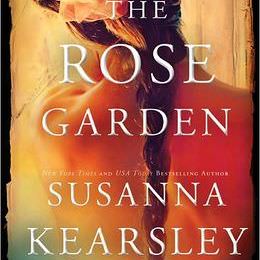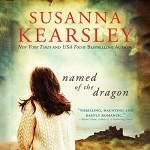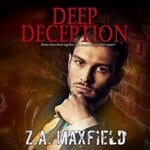 Narrated by Nicola Barber
Narrated by Nicola Barber
Eva Ward, a Brit who now resides in Los Angeles, has recently lost her sister, Katrina, a well-known actress. At the request of her sister’s husband, Eva returns to England to scatter Katrina’s ashes at a location that was dear to her. They spent their summers as children near an idyllic Cornish coastal town called Polgelly; and remembering how happy they were back then, Eva heads to Trelowath House, to stay with their old childhood friends, Mark and Susan Hallett, who now run the rose-growing business – The Rose Garden – that has been in their family for generations.
It’s not long after she arrives that Eva starts to experience hallucinations, sounds and visions which she at first puts down to the fact that she’s still grieving for her sister and to the medication she’s taking for her sleeplessness. But when her hallucinations begin to interact with her, she realises what’s really happening: she is somehow travelling back in time.
In 1715, Trelowarth House is inhabited by Daniel Butler, a free-trader (smuggler), his brother Jack, and their friend-cum-manservant, Fergal, an outspoken Irishman whose insouciance masks a deep and genuine friendship for the brothers, Daniel especially. Eva is unable to control her visits back to the past – she never knows when they will happen, or for how long – but it’s when these begin that the pace of the story really picks up and at last started to engage me, for she is travelling to dangerous and uncertain times. 1715 is the date of the first Jacobite rebellion, the attempt by those loyal to the Stuart line to retake the throne for James Stuart. There were many sympathisers in Cornwall (and other areas of Britain), and Eva realises that not only are the Butlers involved in smuggling, but that they’re also involved with the Jacobites and ready to do whatever is asked of them by their king.
With each of her visits to the past, Eva finds herself drawn closer and closer to the handsome and honourable Daniel – yet how can she possibly have a future with a man from the past?
This is the first book I’ve read or listened to by Susanna Kearsley, and I have to admit, I found it rather difficult to get into at first. The author certainly knows how to set her scene, and the parts at the beginning which deal with Eva’s loss and grief are poignant and beautifully written. The interactions with Eva’s Cornish friends are also full of warmth and affection, and the familial relationships are realistic. Ms Kearsley has clearly done her research, and has included real historical figures in her story at the same time as she brings to life the minutiae of everyday life at the beginning of the 18th Century. Her prose is lovely, and there’s a twist at the end I really didn’t see coming. All of those things should add up to a A or high-B grade for content, but there are a number of things about the story which, unfortunately, didn’t work well enough for me to be able to grade it above a C+
First of all, the pacing is rather uneven. The story only really gets going at around two hours into the audiobook when Eva’s first time-slip takes place. Things pick up after that, but there are still parts where the story seems to drag a little. I also found the romance element rather lacking, as Eva and Daniel don’t actually spend a great deal of time together, even when they’re in the same century.
I’m normally someone who appreciates an author who takes time to set up her characters and story, but the two hours preceding Eva’s first journey back in time were hard going for me for one main reason – the narration. Nicola Barber is a new-to-me narrator, although I know she’s got a number of audiobooks to her credit. Her voice is pleasant to listen to and her narrative is well-paced, but it bothered me that, for a story set in Cornwall in which a large number of the supporting characters are locals, there isn’t a single Cornish accent to be heard! For some strange reason, Ms Barber gives the characters of Mark, Susan and Claire a vague Northern accent that at times has an Irish lilt, and the character of Felicity sounds as though she comes from Liverpool. As a result, the whole thing sounds more like Coronation Street than Poldark, and I found it incredibly irritating given the importance of the Cornish setting.
And unfortunately, the issues I had with the narration only served to amplify some of the problems I had with the story. Stories involving time-travel can be difficult to pull off once you start trying to rationalise it as a plot-device. Being a Doctor Who fan, I don’t have a problem with time travel in fiction! But Doctor Who doesn’t really attempt to explain it other than that there’s this guy who travels around the universe in a blue box that can travel in space and time. Daft – but okay. I’d have been perfectly happy had Ms Kearsley kept things vague, but instead she tries to justify the time-travel element scientifically, and it feels forced and unnecessary.
I also couldn’t get my head around the fact that Daniel is completely accepting of the fact that Eva is a time-traveller. On only their second or third meeting, when she materialises in his bedroom (which is her room in the 21st Century), he calmly tells her she’s gone back in time three hundred years, and then finds her a dress to wear – which, of course, fits perfectly. Fergal, too, accepts this explanation without much more than a raised eyebrow. I know this is fiction – but I really find it hard to believe that anyone in 1715, no matter how enlightened, wouldn’t have cried “witch!” or at least wanted to get as far away as possible.
Nicola Barber is British, and reads in her “normal” accent while applying an American one to Eva. Even I, with my not-so-American-accent-attuned-ears was able to detect a number of accent slips in Eva’s speech, and there were a number of other mispronunciations, too. One of those is very glaring; given that the word “Jacobite” occurs rather often, I’d have expected the narrator to know how to pronounce it. Unfortunately, it’s pronounced incorrectly almost throughout – as JAKE-obite instead of JACK-obite, which was one of a handful of recurring mispronunciations that took me out of the story. It’s also likely that Trelowarth should be pronounced with the stress on the second syllable (TrelOWarth) rather than on the first.
Setting aside the lack of Cornish accents and the mispronunciations, Ms Barber’s performance is by no means horrible. She differentiates well between the characters, and when it comes to Fergal, Daniel’s friend-cum-manservant, who really SHOULD have an Irish accent, she applies and maintains it well. Daniel’s speech is quite measured and the deeper tone she adopts is suitably masculine and quite attractive, and it’s easy to tell the difference between Daniel and Jack in the scenes in which they appear together.
Ultimately however, I think this might be a book I will enjoy more in print. In audio, I felt it moved too slowly in the early stages, although I can’t be completely sure if that’s a fault of the book itself or because the issues I’ve mentioned with the narration that kept pulling me out of the story every five minutes.
Editor’s note: This review is of the audiobook available in the US. There is a version available at Audible UK with a different narrator.
Caz
Narration: C
Book Content: C+
Steam Factor: You can listen out loud (kisses only)
Violence: Minimal
Genre: Time Travel Romance
Publisher: Audible Studios
The Rose Garden was provided to AudioGals by Susanna Kearsley for review.




1 thought on “The Rose Garden by Susanna Kearsley”
Comments are closed.